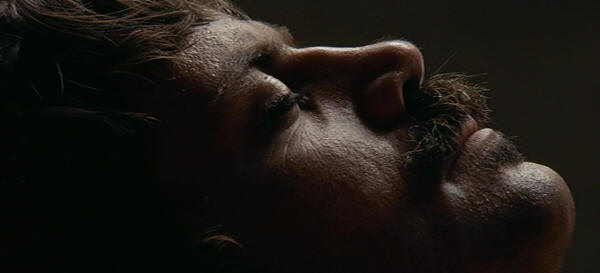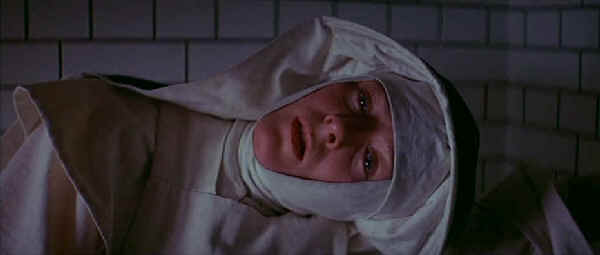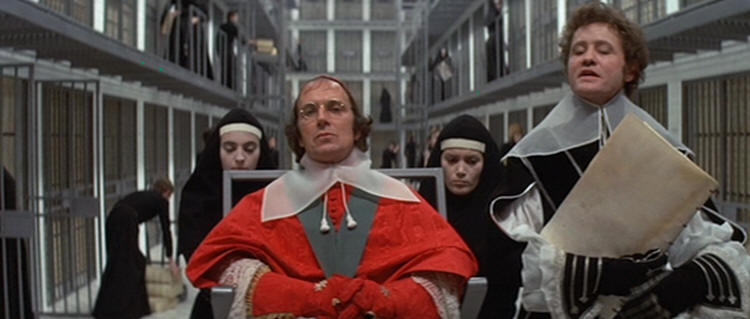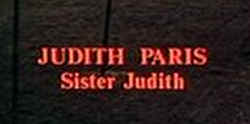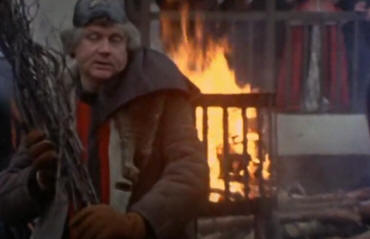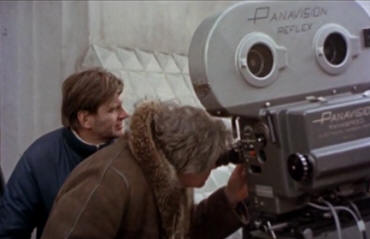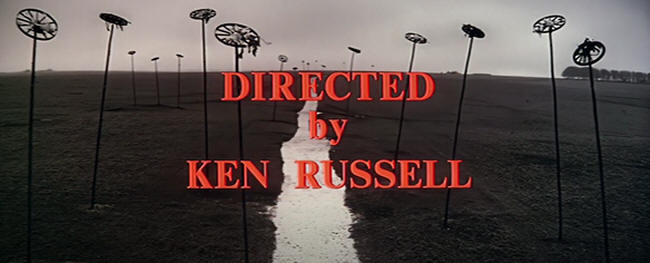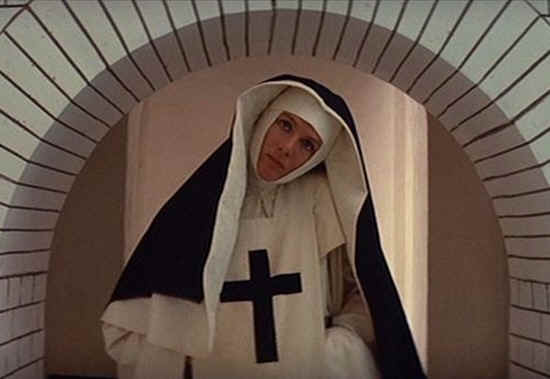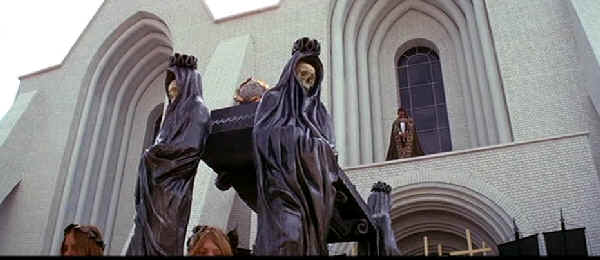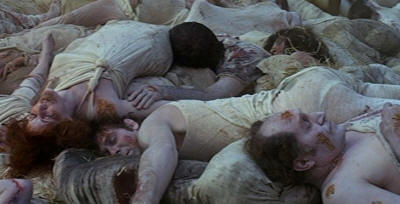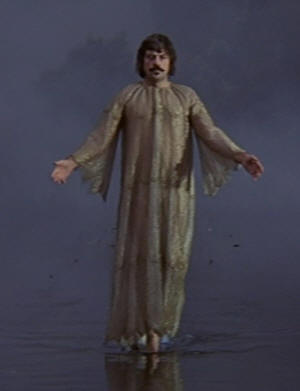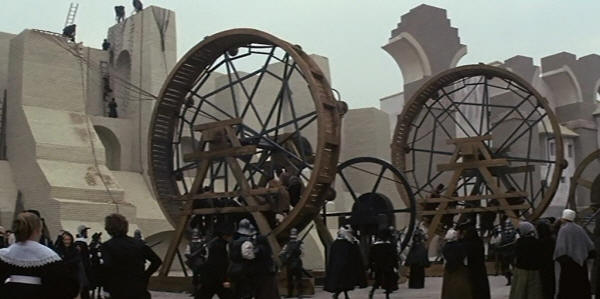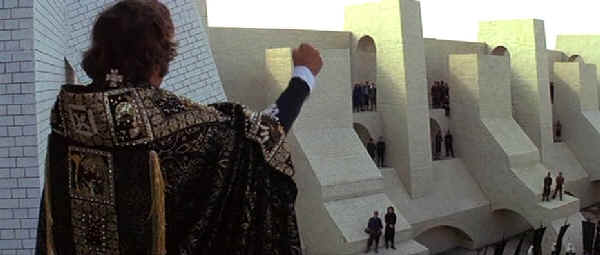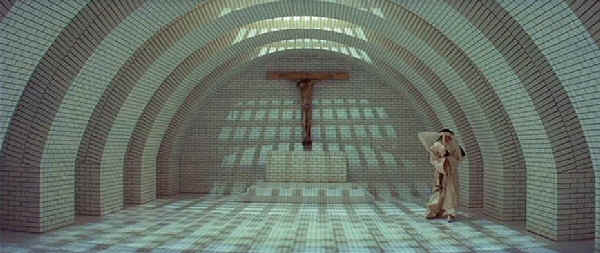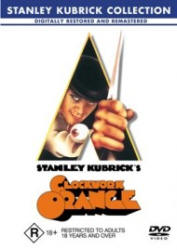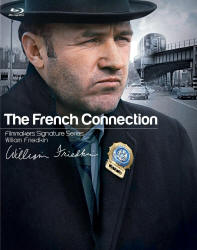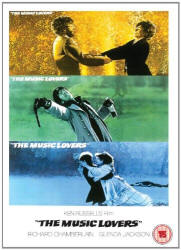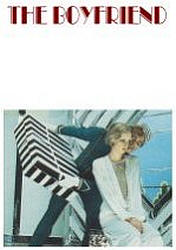|
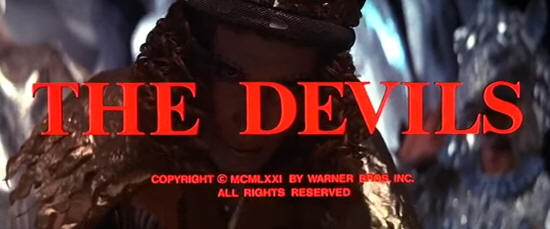
|
"it remains a genuinely
breathtaking work, the jewel in the crown of Russell’s magnificent career;
a film which was ahead of its time forty years ago, and which (like its
creator) never lost the power to enthral and enrage in equal measure"
(Mark Kermode, The Cinema Museum introduction, 24 Aug 2017 click
here) |
Aldous Huxley's "The Devils of Loudon" filmed by
Ken Russell in 1971 as The Devils. About power, corruption and political expediency in
France as the church (Cardinal Richelieu) and crown (Louis XIII) battle
for power over the city of Loudon, in France, protected by massive walls. And Father Urbain Grandier in Loudon will fall
victim, a priest who has lovers yet turns out to have
nobility. Russell says "religion was the theme of the film, it was
the exploitation of religion" (the quote is from the BBC documentary
Empire of the Censors, 1995).
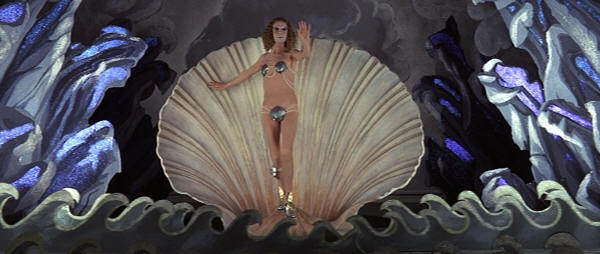
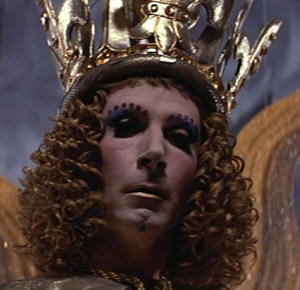
"When Solo [co-producer with Russell] and Russell showed his completed
script to United Artists which had backed the director's previous three
films, the company turned it down with alacrity. Funding was later
secured from Warner Brothers, and in the summer of 1970 with a
budget of some £2 million, Russell began shooting on a closed set at Pinewood Studios"
(from John Exshaw in Cinema Retro, Vol 7 Issue 21, 2011).
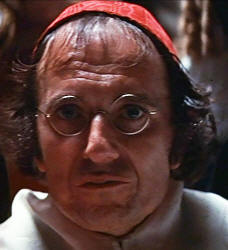
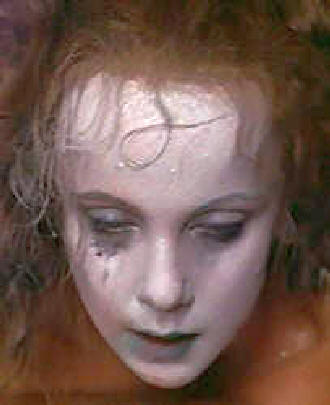
The film confirms Russell's immense talent, and
again the imagery is breathtaking.
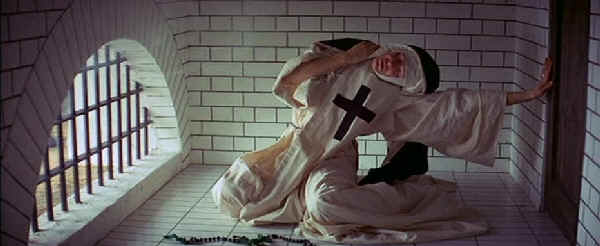
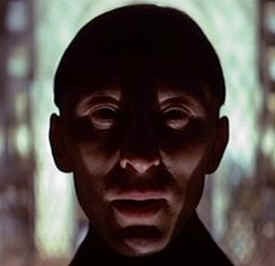
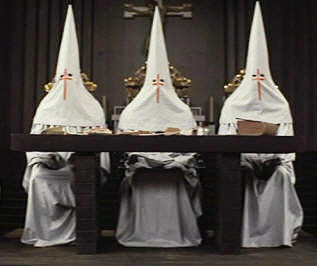
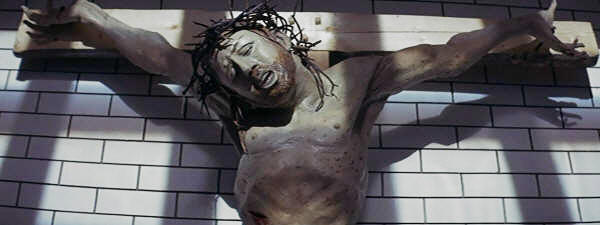
Gaudier is tortured and burnt alive just before
the walls of Loudon, and its independence, are destroyed.
Gaudier's wife is lost among the mountains of bricks as she climbs over
the wall to leave the city, and the colour is bled away.
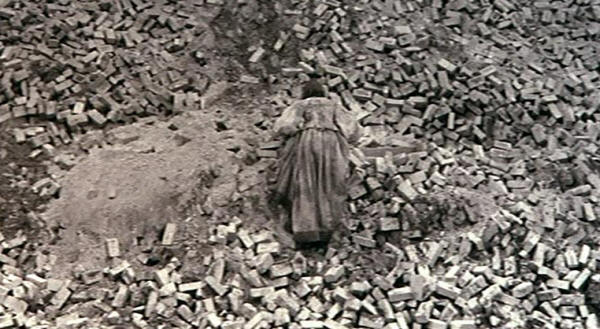
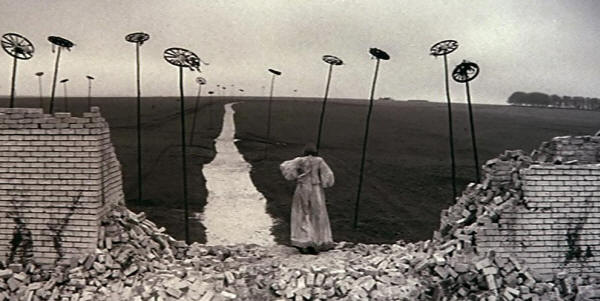
In the film’s opening sequence "Louis XIII performs in a court ballet as
Venus rising from the waves... Russell uses burlesque
theatre, which
was a popular genre in the seventeenth century, to reveal the internal
machinations of power. More specifically, Russell... uses a burlesque
performance to show that there is really nothing behind the facade of
political power. (Staging the World: The Devils as Theatrum Mundi by
Christophe Van Eecke in Journal of British Cinema and Television 12.4
2015).
"The Devils succeeds in conveying its messages because it engages the
senses beyond Huxley’s words. The performances of Vanessa Redgrave as
Jeanne and Reed as Grandier are studies in extremes, with Grandier
remaining controlled until the very end, whereas Jeanne oscillates
between calm and agony as befits a case study in mental fragility" (from
The Devils of Loudun by Kevin M. Flanagan in Books to Film vol 1).
All released versions have been censored. The
power of Russell's imagery was so powerful that
many critics complained of scenes which they
thought were in the film, but were not, rather
they were implied.
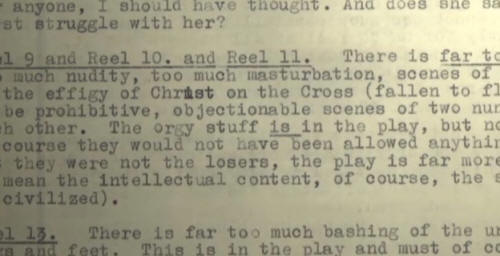
Correspondence from the British Board of Film
Censorship on The Devils detailing the cuts they required (from BBC4 Dear Censor).
When on a television programme
with Russell, critic Alexander Walker called the film
"monstrously indecent". Russell famously hit
him over the head with a rolled up copy of the Evening Standard (from
Obituary by Tom Vallance, The Independent, 29 Nov 2011).
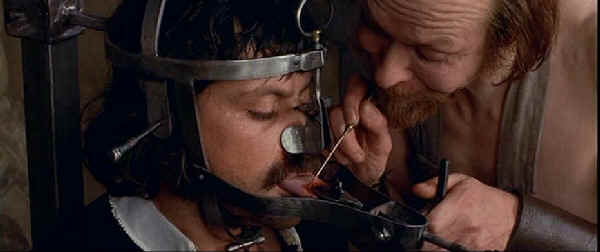
The torture of Reed was censored in the original
versions, but is included in later versions (it lasts seconds).
The rape of Christ scene was censored by the studio and was thought to
be lost. Mark Kermode did research on the filming of The Devils.
He says in The Observer 4 Dec 2011 "I was standing in Mothercare in
Southampton when my mobile phone rang and a familiar voice came on the
line. It was Tim, an archivist from Warners whom I had been pestering
for years about trying to track down some long-lost film footage. 'I've
got the tin you were asking for,' said Tim, with an edge of excitement
in his voice. 'I'm not sure what's on it, because when I opened it, it
smelt of vinegar, so I've sent it to be treated. But I had a quick look
at the first couple of frames and from what I could see there was a
bunch of naked nuns and a bloody massive crucifix…' 'I'll call you
straight back,' I said, hastily hung up the phone and dialed another
number. 'Ken, it's Mark. Listen, I'm in the nappy department of
Mothercare and I think we just found the rape of Christ…'." A restored
version with the full sequence, was shown at the National Film Theatre
on 23 Nov 2004.
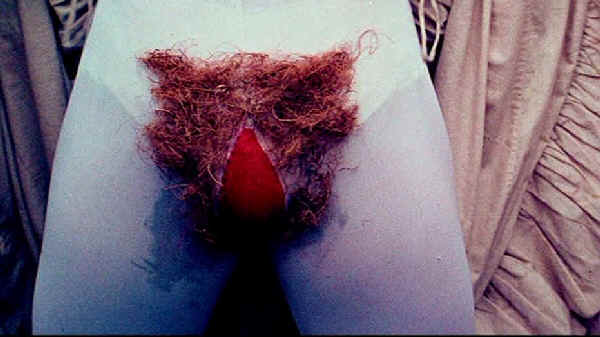
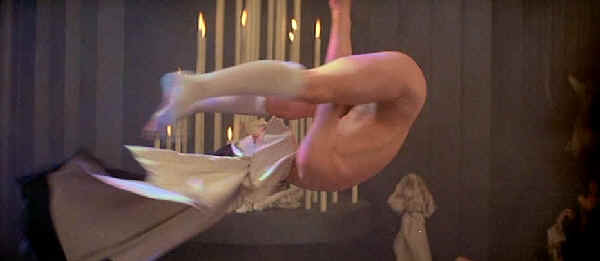
The film was based on Aldous Huxley's 1952 rambling but interesting account of
the actual incidents at Loudun, and on John
Whiting´s 1961 stage play of the novel. The premiere of the
play, 10 years before the film, included Max Adrian as
Father Barre and Dorothy Tutin as Sister Jeanne, both in this film,
though in different roles.
"Speaking in 1997 Russell recalled how he came to be involved in
thee film. 'Robert Solo, the producer, gave me the Whiting play, The
Devils, which I 'd seen anyway, and the Aldous Huxley The Devils of
Loudun. which I didn't know about and asked if I would like to make the
film. I read both and was captivated' " (from John Exshaw in Cinema
Retro, Vol 7 Issue 21, 2011).
When Ken worked on the BBC Monitor programme an episode on 26 Feb
1961, which Ken did not direct, features two short films. One on
John Whiting and his play The Devils, the other on two composers one of
whom was Peter Maxwell Davies who later composed the music for The Devils
(programme details from The Radio Times). The inspiration for Ken's
film? It seem too much of a coincidence to be otherwise.
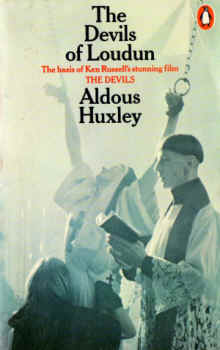
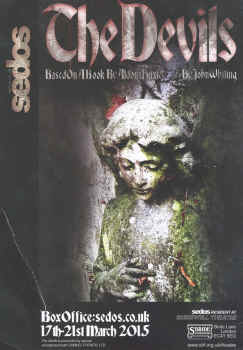
Left Huxley's book reissued to cash in on the
film and right an excellent 2015 performance of John Whiting's play by Sedos in London.
All images from the DVD of the film or the DVD
extras unless otherwise stated.
|

















